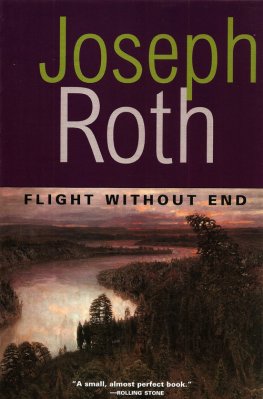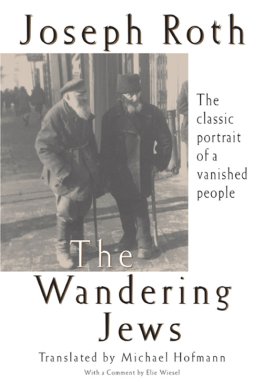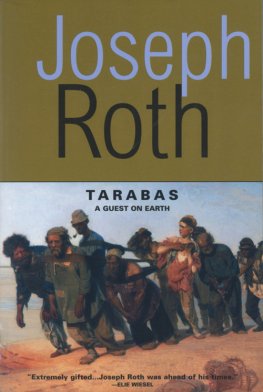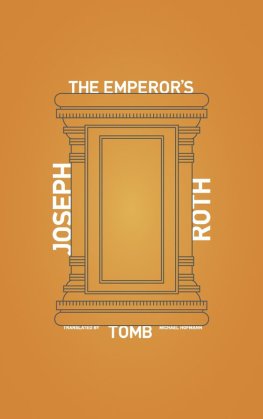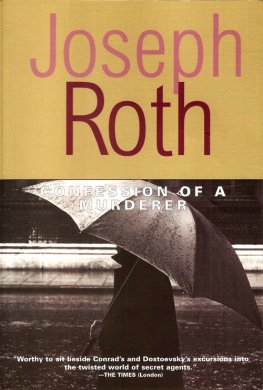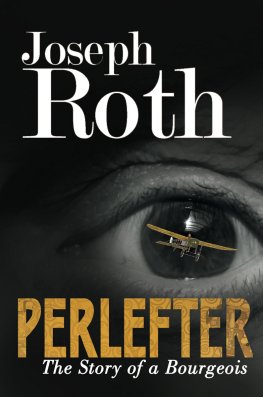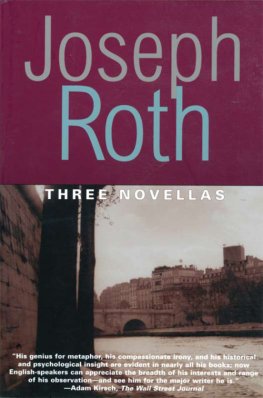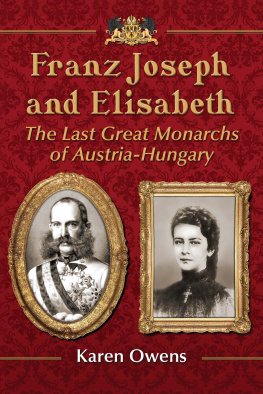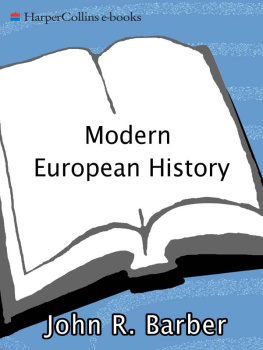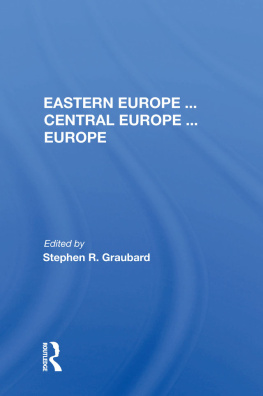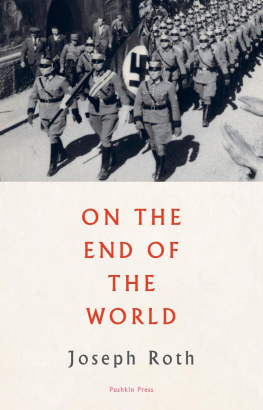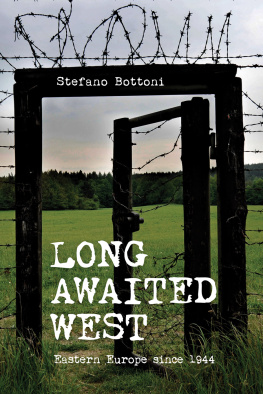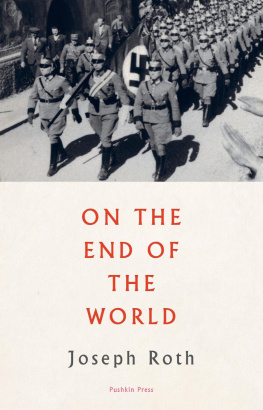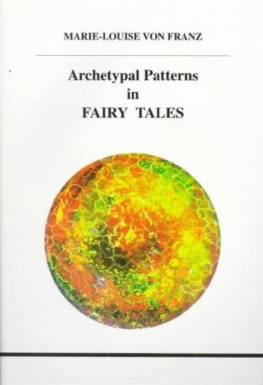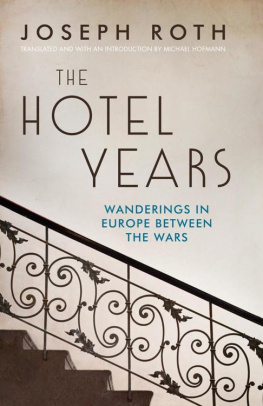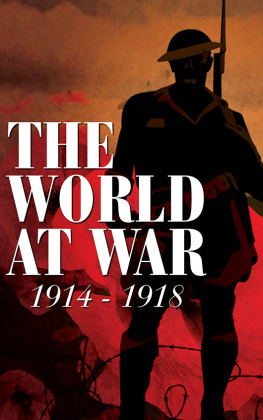Joseph Roth - Flight Without End
Here you can read online Joseph Roth - Flight Without End full text of the book (entire story) in english for free. Download pdf and epub, get meaning, cover and reviews about this ebook. year: 2002, publisher: The Overlook Press, genre: Prose. Description of the work, (preface) as well as reviews are available. Best literature library LitArk.com created for fans of good reading and offers a wide selection of genres:
Romance novel
Science fiction
Adventure
Detective
Science
History
Home and family
Prose
Art
Politics
Computer
Non-fiction
Religion
Business
Children
Humor
Choose a favorite category and find really read worthwhile books. Enjoy immersion in the world of imagination, feel the emotions of the characters or learn something new for yourself, make an fascinating discovery.
- Book:Flight Without End
- Author:
- Publisher:The Overlook Press
- Genre:
- Year:2002
- Rating:3 / 5
- Favourites:Add to favourites
- Your mark:
- 60
- 1
- 2
- 3
- 4
- 5
Flight Without End: summary, description and annotation
We offer to read an annotation, description, summary or preface (depends on what the author of the book "Flight Without End" wrote himself). If you haven't found the necessary information about the book — write in the comments, we will try to find it.
Flight Without End — read online for free the complete book (whole text) full work
Below is the text of the book, divided by pages. System saving the place of the last page read, allows you to conveniently read the book "Flight Without End" online for free, without having to search again every time where you left off. Put a bookmark, and you can go to the page where you finished reading at any time.
Font size:
Interval:
Bookmark:
Joseph Roth
Flight Without End
FOREWORD
In what follows I tell the story of my friend, comrade and spiritual associate, Franz Tunda.
I follow in part his notes, in part his narrative.
I have invented nothing, made up nothing. The question of poetic invention is no longer relevant. Observed fact is all that counts.
Paris, March 1927
Joseph Roth
I
Franz Tunda, first lieutenant in the Austrian Army, became a Russian prisoner of war in August 1916. He was taken to a camp a few versts north-east of Irkutsk. He succeeded in escaping with the help of a Siberian Pole. On the remote, isolated and dreary farm of this Pole, the officer remained until the spring of 1919.
Foresters stopped by at the Poles, bear-hunters and fur-traders. Tunda had no need to fear pursuit. No one knew him. He was the son of an Austrian major and a Polish Jewess, born in the small Galician town of his fathers garrison. He spoke Polish; he had served in a Galician regiment. It was easy for him to pass himself off as a younger brother of the Pole. The Poles name was Baranowicz. Tunda called himself likewise.
He obtained false papers in the name of Baranowicz, was henceforth born in Lodz, had been invalided from the Russian Army in 1917 on account of an incurable and infectious eye disease, and was by occupation a fur-trader resident in Verchni Udinsk.
The Pole counted his words like pearls; a black beard reinforced his reserve. Thirty years earlier he had come to Siberia as a convict. Later, he stayed on of his own free will. He collaborated with a scientific expedition exploring the taiga, roamed in the forests for five years, then married a Chinese woman, became a Buddhist, stayed in a Chinese village as doctor and herbalist, had two children, lost both of them and his wife to the plague, returned to the forests, lived by hunting and fur-trading, learned to recognize the tigers tracks in the thickest grass, omens of storms in the erratic flight of birds, knew how to distinguish hail- from snow-clouds and snow- from rain-clouds, studied the habits of foresters, robbers and harmless travellers, loved his two dogs like brothers, and revered snakes and tigers. He volunteered to serve in the war, but made such a sinister impression on his comrades and officers in the barracks that they sent him back to his forests as a lunatic. Every year, in March, he visited the town. He bartered horns, hides, antlers for ammunition, tea, tobacco and spirits. He also took back a few newspapers so as to keep in touch with events, but believed neither the news nor the articles; he did not even trust the advertisements. For years he visited a particular brothel to see one Ekaterina Pavlovna, a redhead. If someone else was with the girl Baranowicz would wait, a patient admirer. The girl grew elderly, dyed her grey hairs, lost first one tooth, then another, then her dentures, too. Every year Baranowicz had a shorter time to wait, until eventually he was the only one to visit Ekaterina. She began to love him, was consumed with yearning throughout the year, the late yearning of a late betrothed. Every year her tenderness grew, her passion increased; an old woman, with shrivelled flesh, she enjoyed the first love of her life. Every year Baranowicz brought her the same Chinese necklaces and the little flutes he carved himself, on which he imitated the calls of birds.
In February 1918 Baranowicz lost the thumb of his left hand when he was carelessly sawing wood. It took six weeks to heal; in April the hunters were due to arrive from Vladivostok; he was unable to visit the town that year. Ekaterina waited in vain. Baranowicz sent her a letter by a hunter and comforted her. Instead of the Chinese pearls he sent her sables and a snake-skin and a bears coat as a bedside rug. So it came about, in this most important of all years, that Tunda did not see a newspaper. Not until the spring of 1919 did he learn from Baranowicz on his return that the war was over.
It was a Friday. Tunda was washing the dishes in the kitchen, Baranowicz came through the door, the dogs were barking. Ice clattered on his black beard, a raven sat on the window-sill.
Its peace, its revolution! said Baranowicz.
At that moment all was still in the kitchen. The clock in the next room struck three loud strokes. Franz Tunda put down the dishes gently and carefully on the bench. He did not want to disturb the silence. Probably, too, he was afraid the plates might break. His hands trembled.
All the way back, said Baranowicz, I wondered whether I should tell you. Im really sorry that youll be going home now. We shall probably never meet again, neither will you write to me.
I shant forget you, said Tunda.
Dont be too sure! said Baranowicz.
It was farewell.
II
Tunda wanted to reach the Ukraine, Shmerinka, where he had been captured, then the Austrian frontier-post at Podvoloczyska, and finally Vienna. He had no particular plan; the way ahead was uncertain, even tortuous. He realized that it would take a long time. He had only one resolve: to avoid encountering either White or Red troops and not to get involved in the Revolution. He no longer had a home. His father had met his death as a colonel, his mother had been dead for many years. A brother was an orchestral conductor in a medium-sized German city.
In Vienna his fiance, daughter of Hartmann, the pencil manufacturer, was expecting him. The first lieutenant knew no more about her than that she was beautiful, sensible, rich and blonde. These four qualities had made her a suitable bride.
She used to send him letters and liver pate in the field, sometimes a pressed flower from Heiligen Kreuz. He would write to her every week on dark-blue field-post paper with a moistened indelible pencil brief letters, terse factual reports, news bulletins.
He had heard nothing from her since his escape from the camp. But he did not doubt that she remained true to him and was waiting for him.
He did not question that she would wait for him until his return. But it seemed to him just as certain that she would cease to love him once he was standing before her in person. For when she had become engaged to him he had been an officer. The worlds great troubles had lent him an air of beauty, the proximity of death had enhanced him, the shadow of the tomb had fallen across the living man, the cross on his breast had called to mind the Cross on the Hill. If one assumed a happy outcome, then, after the triumphal march of the victorious troops through the Ringstrasse, there would be waiting for him the golden collar of a major, the staff school, and the eventual rank of general, all to the sound of the soft drum-roll of the Radetzky March.
But for the moment Franz Tunda was a young man without a name, without importance, without rank, without title, without money and without occupation homeless and stateless.
He had his old papers and a picture of his betrothed sewn up in his jacket. It seemed wiser to him to travel across Russia under the assumed name which was as familiar to him as his own. Once across the border he could again make use of his old papers.
Tunda felt the pasteboard on which his beautiful betrothed was portrayed firm and comforting against his heart. The picture was by the court photographers who supplied the fashion magazines with pictures of beautiful women. Frulein Hartmann had appeared as the fiance of the gallant first lieutenant in a series Brides of Our Heroes; the journal had reached him just a week before his capture.
Tunda was able to take the cutting with the picture from his coat-pocket without difficulty whenever he felt inclined to contemplate his fiance. He mourned for her already, even before seeing her again. He loved her twice over: as an ideal, and as one lost forever. He loved the heroism of his far and dangerous journeying. He loved the sacrifice which was necessary to reach his bride, and the futility of this sacrifice. All the heroism of his war years seemed childish to him in comparison with the undertaking he was now attempting. Alongside his despair grew the hope that through this perilous return journey he could once more become desirable as a husband. He was happy the whole way. If anyone had asked him whether this was due to hope or sadness, he would not have known. In the hearts of some men sorrow creates a greater exaltation than joy. Of all the tears one may have to choke back, the most precious are those that one has shed for oneself.
Font size:
Interval:
Bookmark:
Similar books «Flight Without End»
Look at similar books to Flight Without End. We have selected literature similar in name and meaning in the hope of providing readers with more options to find new, interesting, not yet read works.
Discussion, reviews of the book Flight Without End and just readers' own opinions. Leave your comments, write what you think about the work, its meaning or the main characters. Specify what exactly you liked and what you didn't like, and why you think so.

